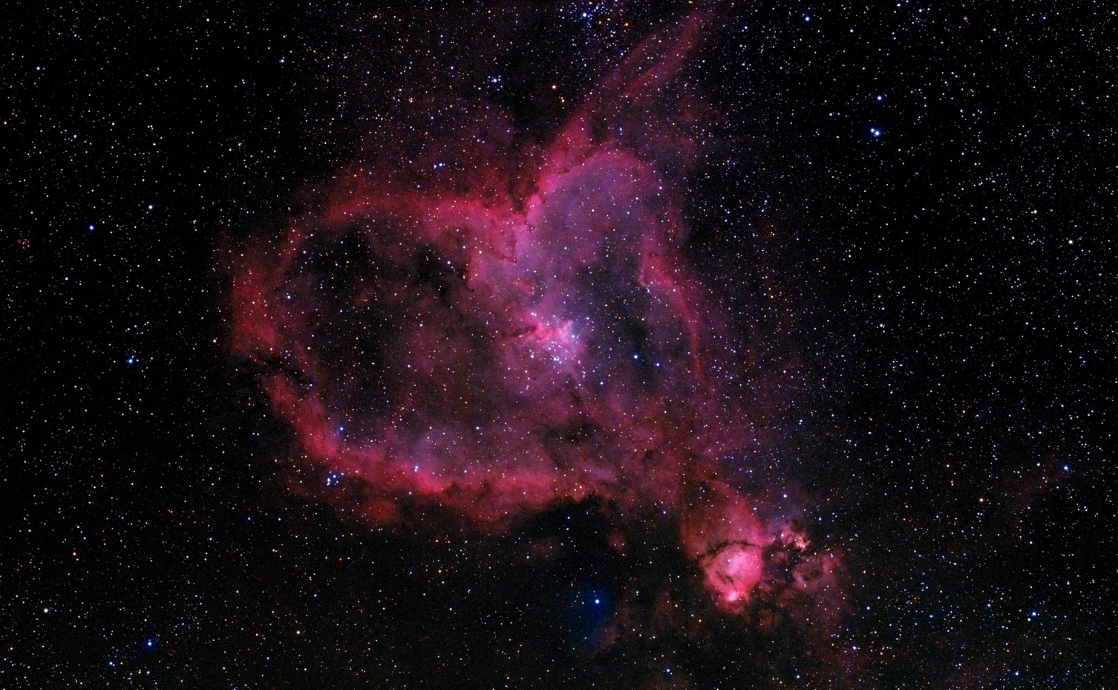The views expressed in our content reflect individual perspectives and do not represent the authoritative views of the Baha'i Faith.
We live in a technological age, and the training of the scientific mind tends to regard the virtues of the heart as impediments to truth, until religion itself verges on becoming an impotent afterthought.
Clearly, though, the Baha’i teachings praise science, elevate its pursuit, and promote the unity of science and religion. Abdu’l-Baha, in speeches he gave in North America in the early part of the 20th century, said: “Science is the first emanation from God toward man” and “The virtues of humanity are many, but science is the most noble of them all.”
RELATED: Science and Religion Are Complementary
Despite the primacy of science in our era, however, most of us would agree that our efforts to overcome the huge problems facing humanity will have to rely on spiritual as well as material forces. In his talks and writings, Abdu’l-Baha clearly and consistently made that point:
As material and physical sciences … are constantly unfolding in wider vistas of attainment, I am hopeful that spiritual development may also follow and keep pace with these outer advantages.
… material progress and spiritual progress are two very different things, and … only if material progress goes hand in hand with spirituality can any real progress come about … If men followed the Holy Counsels and the Teachings of the Prophets, if Divine Light shone in all hearts and men were really religious, we should soon see peace on earth and the Kingdom of God among men. The laws of God may be likened unto the soul and material progress unto the body. If the body was not animated by the soul, it would cease to exist. It is my earnest prayer that spirituality may ever grow and increase in the world, so that customs may become enlightened and peace and concord may be established.
In an article on this topic, the Baha’i physicist Farzam Arbab alluded to a synthesis of those two knowledge systems:
… what I believe will happen is that physicalism – the effort to explain everything, including life, consciousness, reason, and morality, using content and methods set forth by [purely physical] theories – will fall into disrepute as breakthroughs in the understanding of the interactions between the subjective and the objective will occur.
In truth, the core concepts Arbab discussed in his article have held my wrapt attention for years. They have worked on me like a recurring dream, a metaphysical riddle, as I tried to decode their deepest implications.
I now know why. His piece contains an implicit, intimate challenge to me, its message an enormous psychological and spiritual test in my own quest to grow up and to cast aside the things of childhood.
I confess: I have long held a bias against the so-called supremacy of the mind, in favor of the warmth and tenderness of the heart. The rational mind, that brilliant mind of science and technology, has always seemed incorrigibly cold and uncaring to me, while the spiritual heart radiates love and forgiveness. Especially today, immersed as we are in a frenetic scientific and technological culture, our thought leaders say the mind is just a machine of sorts, an intelligent computer, and not a restless ocean, a tender tree, or a crouching lion.
But is it not the heart of man to which we need to turn, where peace and reconciliation, joy and exhilaration, change and transformation really reside?
So I have been concerned that if we are not careful, we will acculturate ourselves to a concept of mind devoid of those heartfelt but more ambiguous dimensions of intuition and inspiration, even of feeling and love, things which seekers and poets hearken to but which science has tended to ignore as untrustworthy for centuries now.
RELATED: Quantum Physics: A Bridge between Science and Religion
But in my exploration of the Baha’i writings I have finally answered that riddle and reconciled that rivalry between science and religion. My breakthrough came when I realized that mind and heart are really the same thing, just two different designations for various aspects of the one spirit of each human being. I am not a psychologist or a professor, just a student of the Baha’i revelation, and I understand now that Baha’u’llah has already put this matter to rest, when he wrote that the Creator:
… chose to confer upon man the unique distinction and capacity to know Him and to love Him — a capacity that must needs be regarded as the generating impulse and the primary purpose underlying the whole of creation …
In other words, when those two capacities are co-ordinated, they constitute an impulse and a purpose, hence a drive, an intentionality that redefines the core of human consciousness altogether. In this Baha’i era, those two capacities “are really indivisible,” according to the Baha’i author John Hatcher, “one action consisting of two integrated parts,” comprising one mind.
In fact, the mind of the scientist and the mind of the believer are actually the same thing. Both seek the truth, and both are lovers and knowers.
But there is more to my new understanding. Consider these words of Abdu’l-Baha from the book Some Answered Questions:
… when you wish to express the reality of the spirit, and its conditions and degrees, you are obliged to describe them in terms of sensible things … It is sanctified from and transcendent above past, present, and future. It is a comparison and an analogy – a metaphor and not a literal truth.
If we want to celebrate such an unlikely marriage of two such ancient antitheses, then, it can only be accomplished by means of the spiritual imagination, or we grow up to become the personal purveyors of an apocalyptic and literal spirituality.
All sacred literature is based on metaphor, parable, and comparison, as supported by spiritual authority, including the teachings and writings of the Baha’i Faith.
Birds warbling, oceans surging, leviathans plunging are all metaphors with which Baha’is are familiar, and which help anchor spiritual perception by associating it with sensible physical phenomena.
Consider these words of pure poetry, invested with Abdu’l-Baha’s spiritual authority and spiritual imagination, as emananting from the mind of God:
If in this day a soul shall act according to the precepts and the counsels of God, he will serve as a divine physician to mankind … he will call the dead of this contingent world to life. … Thus shall a sorry gnat become an eagle in the fulness of his strength, and a feeble sparrow change to a royal falcon in the heights of ancient glory.
Two wings, one eagle mind, crazy with both love and knowledge, but focused and uniting, finally.
Farzam Arbab’s essay is an edited version of his Balyuzi Memorial Lecture, delivered at the Association of Baha’i Studies annual conference, in Montreal in August 2016. My commentary is made all the more sober and respectful knowing that this former member of the Universal House of Justice passed away on September 25, 2020.
















Comments
Sign in or create an account
Continue with Googleor